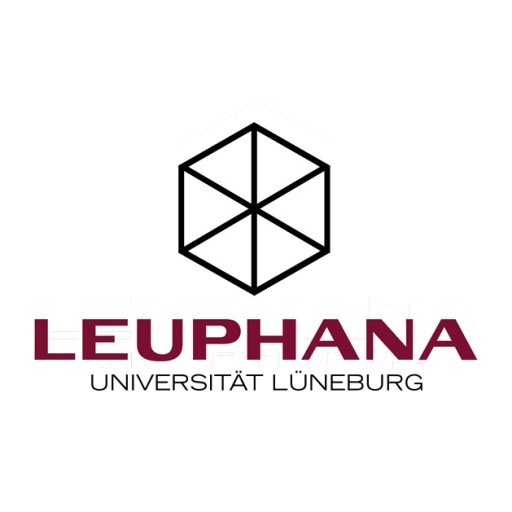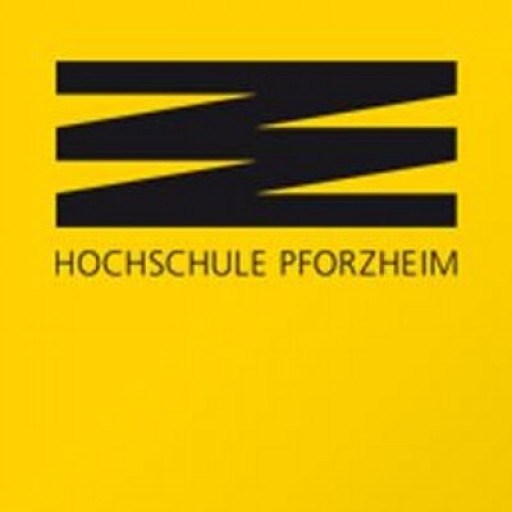Photos of university / #leuphana
Digital Media at Leuphana University of Lüneburg is an innovative and interdisciplinary program designed to equip students with the essential skills and knowledge to thrive in the rapidly evolving digital landscape. This bachelor's degree program combines theoretical foundations with practical applications, focusing on the cultural, social, technological, and economic aspects of digital media. Students will explore a wide range of topics, including media arts and design, digital communication, media philosophy, data visualization, and interactive media development. The curriculum emphasizes critical thinking, creativity, technical competence, and ethical considerations, preparing graduates to address the complex challenges and opportunities presented by digital transformation across various sectors.
Throughout the program, students engage in hands-on projects, collaborative work, and research activities that foster innovation and problem-solving abilities. They learn to develop and analyze digital content, design user-centered interfaces, and understand the societal impacts of digital media. The program also encourages interdisciplinary learning by integrating insights from arts, humanities, social sciences, and computer science, ensuring graduates are versatile and adaptable professionals. With close ties to industry and an emphasis on practical skills, students have the opportunity to undertake internships, participate in workshops, and attend conferences that enhance their professional networks and career readiness.
Graduates of the Digital Media program are well-prepared for diverse careers in fields such as digital content creation, media production, digital marketing, user experience design, and media consultancy. They also possess a strong foundation for further academic research or postgraduate studies. The university’s vibrant academic community, modern facilities, and emphasis on sustainability and societal impact contribute to an enriching educational experience. Leuphana University of Lüneburg’s Digital Media program stands out for its commitment to fostering critical, creative, and competent media professionals who can innovate responsibly in a digital age.
Educational organisation
The Bachelor's degree at Leuphana University of Lüneburg consists of four basic elements: the major Digital Media (90 ECTS), the minor (30 ECTS), the Leuphana Semester (30 ECTS) and the Complementary Studies Programme (30 ECTS).
The Bachelor's degree Digital Media begins with the Leuphana Semester, during which students learn the methodological and disciplinary foundations of their academic specialisation. Starting in the second semester, the coursework will be divided between the major Digital Media (primary field) and the minor (secondary field), as well as the Complementary Studies Programme. In the Complementary Studies Programme, students can try out new ways of working and thinking from other disciplines, allowing them to expand their interdisciplinary skills.
Half of the courses will take place at Hamburg Media School. The other half will be taught in Lüneburg at Leuphana University.
Study abroad unit(s)
The university offers 10 places for a four-semester long stay at Hong Kong City University School of Creative Media (double degree).
Furthermore, the university encourages students to spend one semester abroad. The International Office at Leuphana University of Lüneburg provides all necessary information: http://www.leuphana.de/international-office
Forms of assessment
Courses use different forms of assessment, such as essays, presentations, practical projects, portfolios and exams. The programme culminates in a Bachelor's thesis.
Course objectives
The major Digital Media combines three main objectives. First, students will learn how to engage with Digital Media in a powerful theoretical and critical manner, drawing on knowledge stemming from media studies, media theory, media sociology and media history. Second, students will be introduced in a practical and theoretical way to programming and computer networks. Last, but not least, they will explore the many creative possibilities of Digital Media in their own practical projects.
In all of this, students will encounter the latest theories, tools and trends. More importantly, they will acquire a fundamental skill set that allows them to be part of future changes in a critical, informed, creative and engaged style.
Language requirements
Applicants whose first language is not English must prove sufficient knowledge of the English language.
Applicants can prove their language abilities in various ways:
- by passing the TOEFL test (computer-based) with a minimum score of 97 points or
- by passing the TOEIC test (four skills) with a minimum score of 850 points (listening and reading) and 340 points (speaking & writing) or
- by passing the IELTS test (academic version) with a minimum score of 6.5 points or
- by passing the Cambridge Certificate of Advanced English (CAE) exam with a grade B or
- by passing the Cambridge First Certificate in English (FCE) exam with a grade A
Academic requirements
Admission requirements include:
- university entrance qualification
- sufficient knowledge of the English language
Enrolment fees
Approx. 335 EUR per semester (subject to change)
The enrolment fees include reduced prices in the university canteen and a semester ticket, which allows students to use all local buses in Lüneburg and the surrounding area as well as all regional trains within Lower Saxony and to Hamburg, Bremen and Lübeck with no additional cost. Students need only to present their student ID card and their personal ID card or passport in order to use this semester ticket.
Costs of living
The estimated cost of living per month is approx. 800 EUR.
The cost is made up as follows:
- Accommodation: 350-400 EUR
- Food: 200 EUR
- Health insurance: 80 EUR (not applicable to EU students)
- Books, clothing, leisure activities: 75-150 EUR
Job opportunities
International students with a residence permit are allowed to undertake a limited amount of paid employment (max. 120 days per year, alternatively 240 days part-time up to four hours a day).
Arrival support
The International Office offers an orientation programme for all international students before the start of every semester.
Students will receive assistance with all formalities, e.g. the registration with local authorities, and will be introduced to the services and facilities provided by Leuphana University of Lüneburg, e.g. enrolment, course choice and registration, sports facilities.
Services and support for international students
At Leuphana University of Lüneburg, there are a number of services for students, like the Student Counselling and Advisory Service, Family Service, Career Service, Center for Modern Languages, Writing Centre, Social and Legal Counselling, Psychological Counselling etc.
Additionally, the International Office provides advisory and social activities especially for international students. International student advisers and tutors will support the students during their stay. Furthermore, a variety of excursions and cultural events are offered. All international students are invited to reflect on the progress of their studies in a confidential meeting at least once during each stage. In addition, extensive support is provided by faculty and staff of Leuphana College.
Accommodation
Websites and relevant addresses for finding accommodation in Lüneburg are listed on the International Office website: http://www.leuphana.de/international-office






